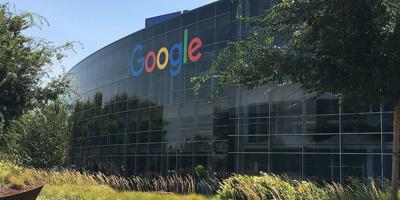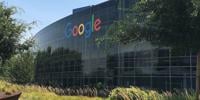
Google headquarters
SAN JOSE - A federal judge has agreed to let former Google employees continue suing the tech giant over allegations they lost their jobs following participation in “Day of Action” workplace demonstrations against Israel and in support of Palestine.
U.S. District Judge Beth Freeman, of the Northern District of California, issued an order Sept. 18 partially denying Google’s motion to dismiss the complaint from people who worked at the company’s offices in New York and Sunnyvale, California.
According to Freeman, the workers participated in a demonstration “organized by a group of technology industry workers called No Tech for Apartheid” in April 2024, over what they say constituted “discrimination and discriminatory harassment against Palestinian, Arab, and Muslim employees and business dealings with the government of Israel.”
After Google fired them, citing violation of corporate policies, they filed complaints with the U.S. Equal Employment Opportunity Commission, which allowed them to proceed with a lawsuit alleging retaliation, employment discrimination and wrongful termination under local and state and laws and Title VII of the federal Civil Rights Act.
Freeman recounted the events of the Sunnyvale protest, saying more than a dozen employees “went up to the sixth floor, which contains a large, open space and a row of executive offices, including the office of Thomas Kurian, head of Google Cloud.” The area wasn’t locked, Kurian’s unoccupied office was open, and a small group “taped a banner up against the inside window that said ‘Thomas Kurian, Drop Project Nimbus,’ referring to a cloud-computing contract with the Israeli government; additional signs said ‘end worker retaliation’ and ‘no AI for military.’ ”
Security told the participants their access was revoked and asked the demonstrators to move to a fourth-floor common space. Although about 10 left immediately, another “five remained and read out a list of the demands over a livestream,” Freeman wrote. Around 3:30 p.m., security told those five they’d been placed on administrative leave and ordered them to evacuate by 5:30 p.m.; at 7 p.m. they again rejected security’s request to leave, so police arrested and removed them. The situation was similar in New York, Freeman said, with four participants refusing to leave and eventually being arrested.
In arguing for dismissal, Google said the employees’ activities weren’t protected as they were not “reasonable in view of the employer’s interest in maintaining a harmonious and efficient operation.” But Freeman said the threshold for a Title VII complaint is “minimal” and referred to a “balancing test” from the U.S. Ninth Circuit Court of Appeals, noting “the reasonableness of an employee’s conduct is a heavily fact-intensive inquiry that depends upon the specific circumstances and context in which the opposing activity occurred.”
Google insisted the workers’ conduct was “shocking” and “disruptive,” but Freeman said dismissal isn’t warranted and the record must be developed.
“Tellingly, every case (Google) cites in support of its motion was decided at the summary judgment stage or later,” Freeman wrote, “further underscoring the importance of the specific factual circumstances in this case.”
Freeman said Google’s position with regards to state law claims fell short on identical grounds but she did agree to dismiss certain allegations regarding San Francisco Police Code and New York City laws. Among those reasons were pre-emption of a retaliation claim under California’s Fair Employment and Housing Act and the fact people who do not live in New York City, or work for Google at the New York office, cannot invoke the protections of those city laws. The workers did ask to be able to amend the complaint by adding plaintiffs who meet the qualifications, a request Freeman granted.
The plaintiffs are represented in the action by attorney Aleksandr L. Felstiner, of the firm of Levy Ratner, of New York.
Google is represented by attorneys Aaron L. Agenbroad, Liat Yamini, Wendy C. Butler and Christian A. Bashi, of the firm of Jones Day, of San Francisco, Los Angeles and New York.



